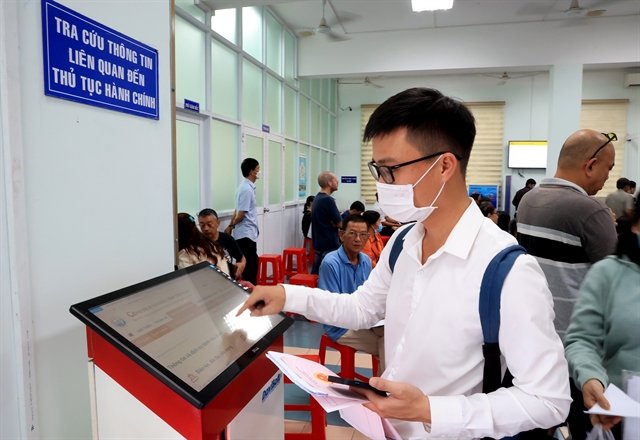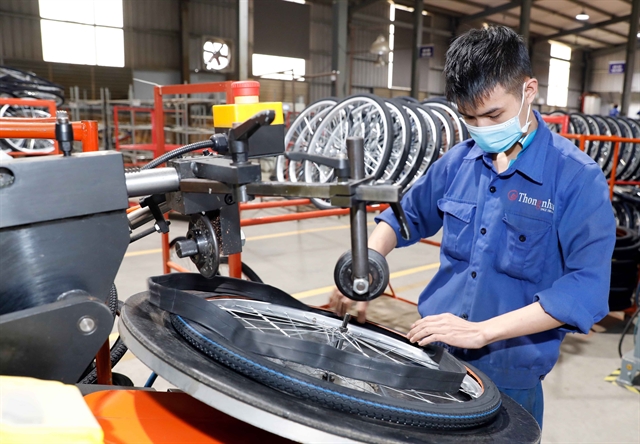 Society
Society

Hà Nội will expand the food safety street model after its successful trial implementation over the past year.
 |
| Inspectors at a restaurant in Hà Nội’s Sơn Tây Town which was found to have a number of violations including trading wines without clear origin and not following regulations on the preservation of uncooked food. — VNA/VNS Photo Dương Ngọc |
HÀ NỘI — Efforts to improve the food service quality in Hà Nội have spurred positive changes, according to a recent review of the implementation of a pilot food-safety street model, Kinh Tế & Đô Thị (Economic and Urban affairs) newspaper reported.
The model was implemented a year ago to encourage more hygienic street food in eight districts including Ba Đình, Hoàn Kiếm, Cầu Giấy, Hà Đông, Long Biên, Thanh Xuân, Tây Hồ and Đan Phượng.
Feedback from customers on the model was positive.
“Since I know that this street (Duy Tân Street in Dịch Vong Hậu Ward) abides by strict management on food origin and quality, my family and I often come here for meals at the weekends,” said Nguyễn Minh Anh, who lives in Cầu Giấy District.
Vũ Minh Tâm, a resident from Thanh Xuân District, said upon hearing the news that all restaurants on the street obtained food safety certificates, he felt secure when inviting his friends and partners to dine here.
Trần Thu Hương, vice chairman of Dịch Vọng Hậu Ward in Cầu Giấy District, said the implementation of a pilot food-safety street model has helped improve trust among consumers while improving the locality’s prestige.
Statistics from Hà Nội’s Department of Health (DoH) showed that 95 per cent of establishments (at piloted districts) which provide food service obtained food safety certificates and 85.5 per cent of them used foods with clear origin, an increase of 50 per cent compared with 2017’s figure.
Nguyễn Khắc Hiền, director of Hà Nội’s Department of Health, attributed the success of the model to high responsibility of districts’ authorities and awareness on food safety of local businesses and residents.
However, he said, managing street vending was the biggest challenge in building a food safety street model.
A number of stalls failed to meet the requirements on infrastructure due to the fact that they operated on a small scale and the origin of some produce used to make the food was not clear, he said. In addition, a number of consumers still haven’t got into the habit of throwing waste in the bin.
These above-mentioned issues were hindering the food safety management work.
Hiền said that this year the model would be expanded to six other districts with a view to enhance food safety control and reduce food poising cases and food-borne diseases.
He called on local authorities and organisations to work together on campaigns aimed at promoting food safety.
Regular inspections should be conducted and businesses are reminded to strictly follow food safety and environmental protection regulations. Due punishment should be imposed on violators, he said.
In related news, Trần Văn Chung, deputy director of the DoH, said Hà Nội would expand specialised inspections on food safety to 100 per cent of its districts and communes after successful trial implementation of the model from July this year.
In 2015, food safety inspection forces were piloted in twenty communes in Hà Nội and HCM City. The initiative proved efficient in tightening management on food safety, reducing food poisoning cases and preventing violations by food suppliers.
Hà Nội and HCM City have obtained more than VNĐ1.16 billion (US$49,880) and VNĐ4.13 billion ($177,676) respectively, from fines for food safety violations. — VNS









